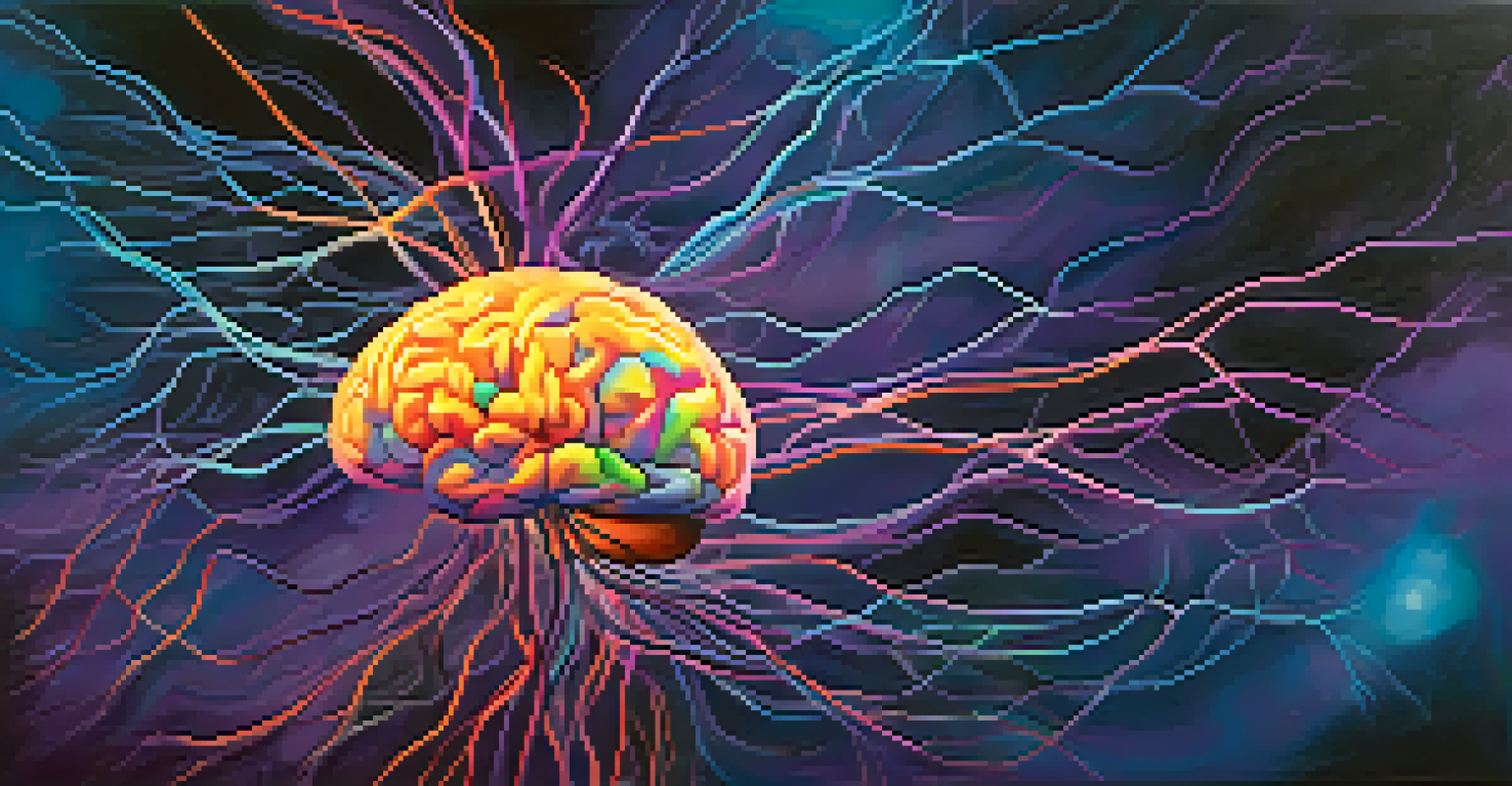Entheogenic Experiences: Transformative Journeys to Recovery

Understanding Entheogens: What Are They?
Entheogens are substances that are often used in spiritual or religious contexts to induce altered states of consciousness. These natural compounds, such as psilocybin mushrooms or ayahuasca, can lead to profound personal insights and transformative experiences. While they have been historically utilized in various cultures, their modern-day applications in therapy are gaining attention.
The use of psychedelics in therapy is a way to explore the depths of human consciousness and to unveil the hidden aspects of the mind that can lead to healing.
The term 'entheogen' comes from the Greek, meaning 'generating the divine within.' This highlights the potential for these substances to unlock deeper aspects of ourselves. Many users report feelings of interconnectedness and a greater understanding of their life's purpose during these experiences.
In recent years, the therapeutic potential of entheogens has sparked scientific research, revealing their ability to help with mental health issues like depression, anxiety, and PTSD. By understanding how these substances work, we can better appreciate their role in recovery journeys.
The Science Behind Entheogenic Experiences
Research into entheogens has shown that they can significantly affect brain activity and connectivity. For instance, substances like psilocybin can increase neural connectivity, allowing different parts of the brain to communicate in ways they typically wouldn’t. This can lead to new perspectives and insights, which are essential for healing.

Studies have found that a single session with an entheogen can lead to lasting changes in mood and behavior. For example, patients with treatment-resistant depression have reported substantial improvements after therapeutic sessions involving psilocybin. This suggests that entheogens may offer more than just temporary relief.
Entheogens Enhance Healing Journeys
Entheogens can induce profound personal insights and transformative experiences that aid in mental health recovery.
The neurobiological effects of these substances can also promote neuroplasticity, the brain's ability to reorganize itself. This is particularly important in recovery, as it allows individuals to form new, healthier thought patterns and behaviors, paving the way for enduring change.
Personal Stories: Transformative Journeys
Many individuals who have undergone entheogenic experiences share stories of profound transformation. For instance, a veteran struggling with PTSD might find clarity and peace during a guided ayahuasca ceremony, leading to a renewed sense of purpose. These narratives highlight the potential for personal healing that goes beyond conventional methods.
Entheogens can provide insights that lead to transformative experiences, reshaping our perceptions and connecting us to a larger whole.
One common theme in these stories is the feeling of connection to something greater than oneself. People often describe experiencing a sense of unity with nature, fellow participants, or even the universe, which can be incredibly grounding. This connection can help individuals confront and process their traumas in a safe environment.
As these stories circulate, they inspire others seeking recovery to explore entheogenic therapies. The idea that a single experience can shift one's perspective and promote healing is both empowering and hopeful, encouraging a broader acceptance of these practices in therapeutic settings.
The Role of Guided Experiences in Recovery
Guided entheogenic experiences can offer a supportive framework for individuals on their healing journeys. Trained facilitators help create a safe environment, ensuring that participants feel comfortable to explore their emotions. This guidance is crucial, as navigating intense experiences can be overwhelming without proper support.
During these sessions, facilitators often employ techniques like breathwork, meditation, or music to enhance the experience. This holistic approach can deepen the journey, allowing individuals to connect more profoundly with their inner selves. It’s not just about the substance; it’s about the entire experience and the support surrounding it.
Guided Experiences Foster Safety
Trained facilitators create supportive environments for individuals to explore their emotions during entheogenic sessions.
Moreover, post-experience integration sessions are vital for translating insights gained during the journey into everyday life. These follow-up discussions help individuals process their experiences, reinforcing the lessons learned and aiding in long-term recovery.
Challenges and Considerations in Entheogenic Use
While the potential benefits of entheogenic experiences are immense, there are also challenges and considerations to keep in mind. For one, not everyone is suited for these experiences; individuals with certain mental health conditions may face risks. It’s essential to consult with a knowledgeable professional before embarking on this journey.
Additionally, the legal status of entheogens varies widely across regions, which can complicate access to these transformative experiences. Understanding local laws and regulations is crucial for those interested in exploring entheogens as a therapeutic option.
Finally, it’s important to approach these substances with respect and intention. The mindset in which one enters an entheogenic experience can significantly influence the outcome. A well-prepared individual with clear intentions is more likely to benefit from the journey.
Integrating Lessons from Entheogenic Journeys
Integration of experiences gained during entheogenic journeys is crucial for lasting change. After the experience, individuals often feel a surge of insight and clarity, but without proper integration, these feelings may fade. It’s essential to find ways to incorporate these lessons into daily life.
Practices such as journaling, meditation, or therapy can help solidify the insights gained during the experience. Sharing these experiences with supportive friends or groups can also provide valuable perspective and accountability. This community support is vital in maintaining the momentum gained from the journey.
Integration Ensures Lasting Change
Properly integrating insights from entheogenic experiences into daily life is crucial for sustainable personal growth.
Ultimately, the goal of integration is to help individuals translate their profound experiences into actionable steps for personal growth. This process can facilitate ongoing healing and transformation, making the benefits of entheogenic experiences truly sustainable.
The Future of Entheogenic Therapy in Recovery
As research into entheogens continues to expand, the future of this therapy in recovery looks promising. Increasingly, mental health professionals are recognizing the value of these substances in treating various psychological conditions. This shift could lead to more inclusive treatment options for those struggling with mental health issues.
Moreover, as societal perceptions change and more success stories emerge, the stigma surrounding entheogens may diminish. This could pave the way for further research, acceptance, and ultimately, more widespread therapeutic use. It’s an exciting time for those advocating for innovative approaches to mental health.

Looking ahead, we may witness a blending of traditional therapeutic practices with entheogenic approaches. This integration could offer a comprehensive healing model that addresses both the psychological and spiritual aspects of recovery, enhancing the overall effectiveness of treatment.